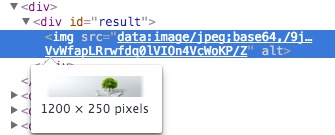 Web Front-end
Web Front-end
 JS Tutorial
JS Tutorial
 Implementing multiple file uploads based on javascript html5_javascript skills
Implementing multiple file uploads based on javascript html5_javascript skills
Implementing multiple file uploads based on javascript html5_javascript skills
The example in this article shares with you how to implement multiple file uploads using javascript html5. The specific content is as follows
HTML structure:
<div class="container"> <label>请选择一个图像文件:</label> <input type="file" id="file_input" multiple/> </div>
By the way, let’s talk about the main logic of this upload:
- Use the input tag and select type=file. Remember to bring multiple, otherwise you can only select a single image
- Bind the change time of the input,
- The key point is how to handle this change event. Use the new FileReader interface of H5 to read the file and encode it into base64. The next thing is to interact with the back-end classmates
JS code:
window.onload = function(){
var input = document.getElementById("file_input");
var result,div;
if(typeof FileReader==='undefined'){
result.innerHTML = "抱歉,你的浏览器不支持 FileReader";
input.setAttribute('disabled','disabled');
}else{
input.addEventListener('change',readFile,false);
}<br> //handler
function readFile(){
for(var i=0;i<this.files.length;i++){
if (!input['value'].match(/.jpg|.gif|.png|.bmp/i)){ //判断上传文件格式
return alert("上传的图片格式不正确,请重新选择")<br> }
var reader = new FileReader();
reader.readAsDataURL(this.files[i]);
reader.onload = function(e){
result = '<div id="result"><img src="'+this.result+'" alt=""/></div>';
div = document.createElement('div');
div.innerHTML = result;
document.getElementById('body').appendChild(div); //插入dom树 <br> }
}
}
}
Is it possible to upload multiple pictures just like this?
However, it doesn’t. This just converts the image into base64 encoding and then displays it on the front end. When refreshing, there is nothing
After inserting the image, open the developer tools and see that the html structure is like this

The realistic approach is that we send the files in the file queue to the backend in the processing function. The backend students return the MD5 encrypted file and path corresponding to the file to the front end, and the front end takes this path and renders it to the page. superior.
Then the MD5 file is sent back to the backend, because the frontend usually deletes the pictures after uploading. The purpose of the return is to tell the backend to confirm that those pictures are what we want, and the backend stores them in the database.
Tell me how to interact with jquery
function readFile(){
var fd = new FormData();
for(var i=0;i<this.files.length;i++){
var reader = new FileReader();
reader.readAsDataURL(this.files[i]);
fd.append(i,this.files[i]);<br> }
$.ajax({
url : '',
type : 'post',
data : fd,
success : function(data){
console.log(data)
}
})
}
FormData is also a new interface of H5, used to simulate the submission of form controls. The biggest advantage is that it can submit binary files
Then after we get the desired data back in the success callback, we can insert the image into the page, similar to the previous method~
Last rendering:

The above is the entire content of this article, I hope it will be helpful to everyone’s study.

Hot AI Tools

Undresser.AI Undress
AI-powered app for creating realistic nude photos

AI Clothes Remover
Online AI tool for removing clothes from photos.

Undress AI Tool
Undress images for free

Clothoff.io
AI clothes remover

Video Face Swap
Swap faces in any video effortlessly with our completely free AI face swap tool!

Hot Article

Hot Tools

Notepad++7.3.1
Easy-to-use and free code editor

SublimeText3 Chinese version
Chinese version, very easy to use

Zend Studio 13.0.1
Powerful PHP integrated development environment

Dreamweaver CS6
Visual web development tools

SublimeText3 Mac version
God-level code editing software (SublimeText3)

Hot Topics
 How to implement an online speech recognition system using WebSocket and JavaScript
Dec 17, 2023 pm 02:54 PM
How to implement an online speech recognition system using WebSocket and JavaScript
Dec 17, 2023 pm 02:54 PM
How to use WebSocket and JavaScript to implement an online speech recognition system Introduction: With the continuous development of technology, speech recognition technology has become an important part of the field of artificial intelligence. The online speech recognition system based on WebSocket and JavaScript has the characteristics of low latency, real-time and cross-platform, and has become a widely used solution. This article will introduce how to use WebSocket and JavaScript to implement an online speech recognition system.
 WebSocket and JavaScript: key technologies for implementing real-time monitoring systems
Dec 17, 2023 pm 05:30 PM
WebSocket and JavaScript: key technologies for implementing real-time monitoring systems
Dec 17, 2023 pm 05:30 PM
WebSocket and JavaScript: Key technologies for realizing real-time monitoring systems Introduction: With the rapid development of Internet technology, real-time monitoring systems have been widely used in various fields. One of the key technologies to achieve real-time monitoring is the combination of WebSocket and JavaScript. This article will introduce the application of WebSocket and JavaScript in real-time monitoring systems, give code examples, and explain their implementation principles in detail. 1. WebSocket technology
 How to use JavaScript and WebSocket to implement a real-time online ordering system
Dec 17, 2023 pm 12:09 PM
How to use JavaScript and WebSocket to implement a real-time online ordering system
Dec 17, 2023 pm 12:09 PM
Introduction to how to use JavaScript and WebSocket to implement a real-time online ordering system: With the popularity of the Internet and the advancement of technology, more and more restaurants have begun to provide online ordering services. In order to implement a real-time online ordering system, we can use JavaScript and WebSocket technology. WebSocket is a full-duplex communication protocol based on the TCP protocol, which can realize real-time two-way communication between the client and the server. In the real-time online ordering system, when the user selects dishes and places an order
 How to implement an online reservation system using WebSocket and JavaScript
Dec 17, 2023 am 09:39 AM
How to implement an online reservation system using WebSocket and JavaScript
Dec 17, 2023 am 09:39 AM
How to use WebSocket and JavaScript to implement an online reservation system. In today's digital era, more and more businesses and services need to provide online reservation functions. It is crucial to implement an efficient and real-time online reservation system. This article will introduce how to use WebSocket and JavaScript to implement an online reservation system, and provide specific code examples. 1. What is WebSocket? WebSocket is a full-duplex method on a single TCP connection.
 JavaScript and WebSocket: Building an efficient real-time weather forecasting system
Dec 17, 2023 pm 05:13 PM
JavaScript and WebSocket: Building an efficient real-time weather forecasting system
Dec 17, 2023 pm 05:13 PM
JavaScript and WebSocket: Building an efficient real-time weather forecast system Introduction: Today, the accuracy of weather forecasts is of great significance to daily life and decision-making. As technology develops, we can provide more accurate and reliable weather forecasts by obtaining weather data in real time. In this article, we will learn how to use JavaScript and WebSocket technology to build an efficient real-time weather forecast system. This article will demonstrate the implementation process through specific code examples. We
 Simple JavaScript Tutorial: How to Get HTTP Status Code
Jan 05, 2024 pm 06:08 PM
Simple JavaScript Tutorial: How to Get HTTP Status Code
Jan 05, 2024 pm 06:08 PM
JavaScript tutorial: How to get HTTP status code, specific code examples are required. Preface: In web development, data interaction with the server is often involved. When communicating with the server, we often need to obtain the returned HTTP status code to determine whether the operation is successful, and perform corresponding processing based on different status codes. This article will teach you how to use JavaScript to obtain HTTP status codes and provide some practical code examples. Using XMLHttpRequest
 How to use insertBefore in javascript
Nov 24, 2023 am 11:56 AM
How to use insertBefore in javascript
Nov 24, 2023 am 11:56 AM
Usage: In JavaScript, the insertBefore() method is used to insert a new node in the DOM tree. This method requires two parameters: the new node to be inserted and the reference node (that is, the node where the new node will be inserted).
 JavaScript and WebSocket: Building an efficient real-time image processing system
Dec 17, 2023 am 08:41 AM
JavaScript and WebSocket: Building an efficient real-time image processing system
Dec 17, 2023 am 08:41 AM
JavaScript is a programming language widely used in web development, while WebSocket is a network protocol used for real-time communication. Combining the powerful functions of the two, we can create an efficient real-time image processing system. This article will introduce how to implement this system using JavaScript and WebSocket, and provide specific code examples. First, we need to clarify the requirements and goals of the real-time image processing system. Suppose we have a camera device that can collect real-time image data





